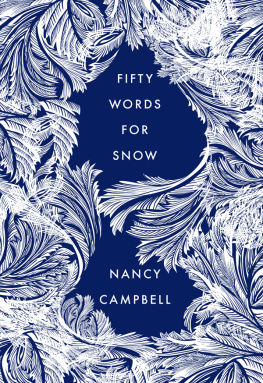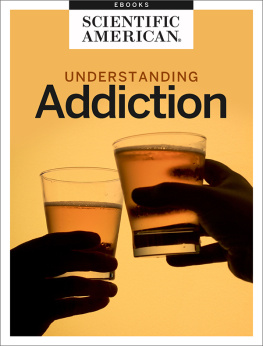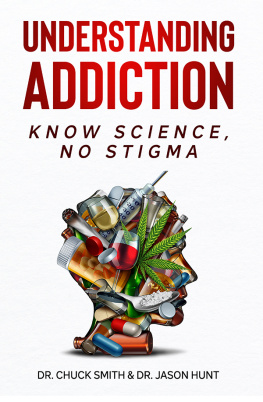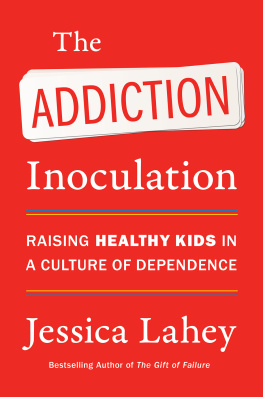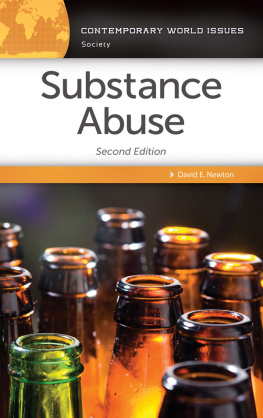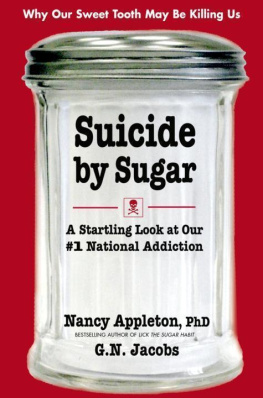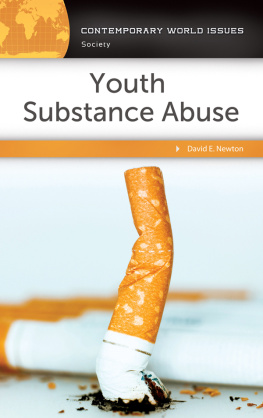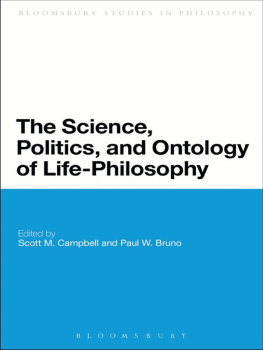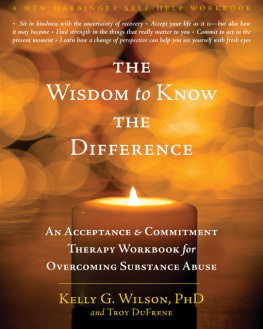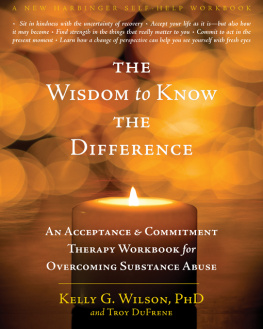Nancy Campbell - Discovering Addiction: The Science and Politics of Substance Abuse Research
Here you can read online Nancy Campbell - Discovering Addiction: The Science and Politics of Substance Abuse Research full text of the book (entire story) in english for free. Download pdf and epub, get meaning, cover and reviews about this ebook. publisher: University of Michigan Press, genre: Politics. Description of the work, (preface) as well as reviews are available. Best literature library LitArk.com created for fans of good reading and offers a wide selection of genres:
Romance novel
Science fiction
Adventure
Detective
Science
History
Home and family
Prose
Art
Politics
Computer
Non-fiction
Religion
Business
Children
Humor
Choose a favorite category and find really read worthwhile books. Enjoy immersion in the world of imagination, feel the emotions of the characters or learn something new for yourself, make an fascinating discovery.

- Book:Discovering Addiction: The Science and Politics of Substance Abuse Research
- Author:
- Publisher:University of Michigan Press
- Genre:
- Rating:5 / 5
- Favourites:Add to favourites
- Your mark:
- 100
- 1
- 2
- 3
- 4
- 5
Discovering Addiction: The Science and Politics of Substance Abuse Research: summary, description and annotation
We offer to read an annotation, description, summary or preface (depends on what the author of the book "Discovering Addiction: The Science and Politics of Substance Abuse Research" wrote himself). If you haven't found the necessary information about the book — write in the comments, we will try to find it.
Discovering Addiction: The Science and Politics of Substance Abuse Research — read online for free the complete book (whole text) full work
Below is the text of the book, divided by pages. System saving the place of the last page read, allows you to conveniently read the book "Discovering Addiction: The Science and Politics of Substance Abuse Research" online for free, without having to search again every time where you left off. Put a bookmark, and you can go to the page where you finished reading at any time.
Font size:
Interval:
Bookmark:
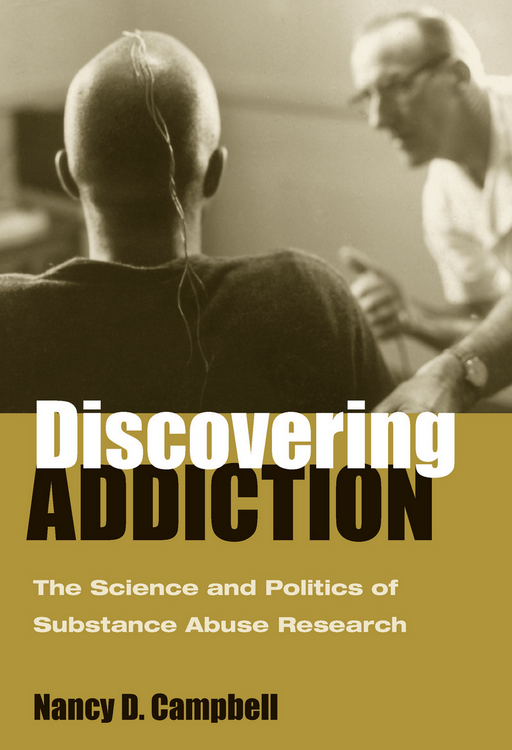
Nancy D. Campbell
The University of Michigan Press
Ann Arbor
Copyright by the University of Michigan 2007
All rights reserved
Published in the United States of America by
The University of Michigan Press
Manufactured in the United States of America
No part of this publication may be reproduced, stored in a retrieval system, or transmitted in any form or by any means, electronic, mechanical, or otherwise, without the written permission of the publisher.
A CIP catalog record for this book is available from the British Library.
Library of Congress Cataloging-in-Publication Data
Campbell, Nancy Dianne.
Discovering addiction : the science and politics of substance
abuse research / Nancy D. Campbell.
p. ; cm.
Includes bibliographical references and index.
ISBN-13: 978-0-472-11610-2 (cloth : alk. paper)
ISBN-10: 0-472-11610-X (cloth : alk. paper)
1. Substance abuse. I. Title.
[dnlm: 1. Substance-Related Disorders. 2. Health Policy.
wm 270 c189d 2007]
rc564.c33 2007
362.29dc22 2007023393
ISBN 978-0-472-90115-9 (OA ebook)
Against amnesia,
this book is dedicated to the researchers at Lexington and the postaddicts who served as human subjects
in the obscurity of long-dead laboratories
The social worlds of drug policy historians and substance abuse researchers are convivial thought collectives. I would particularly like to thank Joseph Spillane, who forged a relationship with the University of Michigan Substance Abuse Research Center (UMSARC). Carol Boyd and Sean MacCabe facilitated our relationship with the College on Problems of Drug Dependence (CPDD), the modern-day incarnation of the original National Research Council committee described (under its various names) in this book. CPDD remains the premier professional association in the field but is now a large membership organization. The CPDD Board of Directors granted over twelve thousand dollars for the interviews on which this book is based. I am grateful to Martin and Toby Adler, Bob Schuster and Chris-Ellyn Johanson, Conan Kornetsky, Wallace Pickworth, and the dozens of CPDD members who allowed us to interview them. The University of Michigan Department of Pharmacology was especially hospitable, and I would like to thank Jim Woods and Gail Winger, Jonathan Maybaum, Ed Domino, and Graham Florry, who graciously volunteered time and insight without which this project would have been impossible. Of course, the author alone is responsible for all errors of omission and commission, as well as differences of interpretation. The interviews were transcribed by Elaine Farris with great generosity, good humor, and accuracy.
At a crucial point, the National Science Foundation funded the oral history project (grant #SES-0620320) so that we could create a digital archive for the interviews, which will be housed on the UMSARC Web site and in the Bentley Historical Library at the University of Michigan. Joseph Spillane joined me on some of the interviews, and a veritable cavalcade of stars agreed to serve on our advisory board. I would like to thank UMSARCs current director, Peggy Ngegy, for the initial inspiration for the advisory board; Carol Boyd for agreeing to head it; and Caroline Acker, David Courtwright, Eloise Dunlap, Sheigla Murphy, and David Musto for joining us. These people comprise a substantial part of the small but committed research community in drug policy history and drug ethnography. Jonathan Maybaum, creator of the SiteMaker software, skillfully guided us through the design of the Web site over the course of several Page x wintry weekends. The process of writing and submitting the grant itself would have been far more difficult and less pleasant without the work of Dean Button of Rensselaer Polytechnic Institute.
During the writing process, I was surprised to encounter independent filmmakers J. P. Olsen and Luke Walden, who were as fascinated by Lexington as I was. Their film The Narcotics Farm tells the story of Narco from the perspective of those who experienced another side of that Lexington institution. My own archival work was ably assisted at the National Archives Southeast in Morrow, Georgia, by archivist Guy Hall and staple-puller extraordinaire Aaron Pevey and at College Park by Bureau of Prisons archivist John W. Roberts. Benefiting from the gifts of a fortuitous environment, I also enjoyed a shipment from the basement of Jon M. Harkness that illuminated the darker corners of the prison research enterprise. Basements served as my archives more than once: I am grateful to Chuck and Barbara Gorodetzky for allowing me to spend hours in theirs despite my advanced stages of pregnancy. I thank Andrea Tone for directing me to the American College of Neuropsychopharmacology (ACNP); Oakley Ray, longtime secretary of that organization, for supporting travel to the archives housed at the Eskind Biomedical Library at Vanderbilt University; and archivist Jeremy Nordmoe. The Rensselaer Polytechnic Institute Office of Research supported the first round of interviews with an internal seed grant to myself, Kim Fortun, and Mike Fortun titled Pharmacogenomics, Toxicogenomics, and the Ethical Implications of Scientific Research on Complex Conditions: A Research Program to Study Emergent Decision Domains at the Intersection of Biotechnology and Information Technology.
Writing the acknowledgments to a book five years in the making feels like bringing together multiple lives. The feminist community sustains me despite the fact that gender, social policy, and the politics of reproductive rights are Page xi underplayed in this book. Michele Berger, Giovanna Di Chiro, Mary Margaret Fonow, Donna Haraway, Sally Kitch, Patti Lather, Nancy Naples, Lynn Paltrow, Sandy Schram, Susan Shaw, and Rickie Solinger remain important to everything that I do. Carol Bohmer and Amy Shuman graciously extended speaking invitations during this time. I am indebted to my doctoral students, Maral Erol, Virginia Eubanks, Jenrose Fitzgerald, and Lorna Ronald, as well as colleagues elsewhere, including Alexine Fleck, Kim Hewitt, Marcia Meldrum, and Noemi Tousignant. I thank the graduate students central to the Rensselaer science and technology studies community, especially Colin Beech, Jon Cluck, Ayala Cnaan, Camar Diaz-Torres, Rachel Dowty, Jill Fisher, Ken Fleischman, Allison Kenner, Eun-sung Kim, Natasha Lettis, Torin Monahan, Dean Nieusma, Casey ODonnell, Marie Rarieya, Erich Schienke, Jeannette Simmonds, Peg Woodell, Shailaja Valdiya, and Bo Xie, as well as undergraduates Dalibel Bravo, Amrit Mohanran, Adam Marcus, Hasan Abdul-Mutakalli, Brandon Reiss, and Dane Dell and Jason Williams, who helped me with research in the last year of this books writing. Members of my more local community who have helped me work through parts of this book include Steve Breyman, Linnda Caporael, Scott Christianson, Tamar Gordon, Kim Fortun, Mike Fortun, Rayvon Fouche, David Hess, Linda Layne, Sal Restivo, Sharra Vostral, Langdon Winner, and Edward J. Woodhouse. For collegiality and camaraderie at Rensselaer, I thank Sharon Anderson-Gold, Anne Borrea, Igor Broos, Dean Button, Lisa DAngelo, John Harrington, Kathy High, Branda Miller, Don Moore, Pam Murarka, Barb Nelson, Allison Newman, Lee Odell, and Kathie Vumbacco. The intellectual hospitality of Kim, Mike, Kora, and Lena Fortun knows no peer. Finally, I would like to thank my familymy parents, Sandra Campbell and David R. Campbell, MD; Connie Campbell, MD, and Tony Diehl; Dave and Amanda Campbell; Gary Campbell; and my partner in all things, Ned Woodhouse, who, along with our children, Isaac Campbell Eglash and Grace Campbell Woodhouse, graciously and grudgingly tolerated my sporadic absences, increasingly insomniac work habits, and obscure enthusiasms. Getting me to play rather than work is their prime objective, and for that I am most grateful.
Next pageFont size:
Interval:
Bookmark:
Similar books «Discovering Addiction: The Science and Politics of Substance Abuse Research»
Look at similar books to Discovering Addiction: The Science and Politics of Substance Abuse Research. We have selected literature similar in name and meaning in the hope of providing readers with more options to find new, interesting, not yet read works.
Discussion, reviews of the book Discovering Addiction: The Science and Politics of Substance Abuse Research and just readers' own opinions. Leave your comments, write what you think about the work, its meaning or the main characters. Specify what exactly you liked and what you didn't like, and why you think so.

